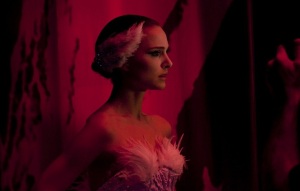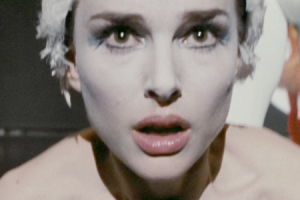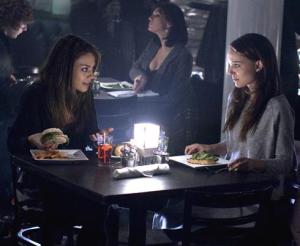Ian Fielding: Black Swan Revisited, Mum’s the Word
Posted: February 12, 2011 Filed under: Cinema, Film Ache, Ian Fielding, Uncategorized | Tags: Black Swan, Ian Fielding, Meaning, Natalie Portman 5 CommentsSince I wrote my original review of Black Swan, which you can find through the link below, I’ve developed and modified my position on the film’s secrets and meaning, and I’d like in this article to expand on my reading of the film’s dark subtext. As I stated in my original review, implanting difficult themes below the story surface is fairly standard screenwriting practice within certain genre films.
A quick recap: the film is ostensibly about a delicate, naive and innocent but highly talented ballet dancer who must access an edgier, more domineering and sexual part of her persona in order to successfully embody the role that she has won, that of the black swan, in Tchaikovsky’s Swan Lake.
We know Nina is already something on the edge but this challenge precipitates an incredible transformation that initiates delusions, terrifying hallucinations, self harm and eventually leads her to end her life.
So why? Why does the adoption of this role generate such a terrifying psychological upheaval within Nina?
For this role Nina is explicitly requested to interrogate her sexual character, a domain she has repressed from herself for a reason – namely that she is suffering from past and possibly continuing sexual and emotional abuse at the hands of her overbearing mother. It is as if the friction of simultaneous belief and denial about what has happened gives rise to these harrowing episodes.
Where is the evidence? Actually throughout the film it is continually dispersed. Firstly, Nina’s character, before her psychological meltdown, displays characteristics of an individual who has been abused, she is isolated, reserved, seems to find it hard to communicate with her fellow dancers, has possible trust issues, assertion issues, self-esteem issues.
Also look at the excessive infantilisation that she is subjected to, the childish bedroom with the stuffed toys, being dressed and undressed by mother. No lock on the door. When her friend Lily shows up at the door she is turned away by Erica, her mother. Infantilisation is a common practice deployed by abusers to forestall the sexual development of their victims.
When the dance choreographer Thomas kisses Nina she responds by biting his lip and then running away, is this deeply unusual act not the symptomatic behavior of the kind of person who has had to learn to defend themselves sexually?
Importantly the parallels between Lilly and Erica are continually made. Could it be that when Nina sees Lily she sees a safe or legitimate outlet for the sexual feelings that have been implanted in her by her mother?
Further hints arrive when Nina attempts to masturbate. Once on her bed and a second time in the bath. In the bedroom, Nina turns during the act to witness the presence of Erica asleep in her room, the presence is physically nonthreatening but deeply unnerving. In the bath the image has become a potential danger, it stares straight into Nina’s eyes, looking like some demonic mixture of Lily, Nina and Erica, as if the lines between these three characters has become blurred. Monstrously, Erica has invaded Nina’s fantasy space.
The key event in Nina’s sex life during the film is the night of her drugged drunken debauches, when she apparently takes Lily back to her apartment after having fucked (as she puts it), two boys in the nightclub. The mother appears, in exactly the same way as Lily appears to Nina in an earlier scene at the dance studio. Erica proceeds to fiercely admonish Nina as if no one else where there, uttering the telling phrase ‘Shut your mouth’ Now Nina runs to her bedroom and sleeps with a woman, and we know that Lily emphatically denies having been there. So who was with Nina? The person who was there clearly utters the phrase, ‘my sweet girl’ before holding a cushion over Nina’s head. This is Erica’s trademark phrase. This is only really the beginning of this series of disturbing clues. There are, echoing through the film, many more reverberations on this theme.
A very common reaction is to brush aside the logic of the picture by diagnosing Nina with schizophrenia and leaving it at that, without considering the origin of our hero’s disturbance. Sadly, and I think in this case, a little uncannily, this pattern all too often repeats itself outside of the cinema, in the real world.
Further evidence of the importance of cinema in mobilising public debate.
Read my original article HERE
My name’s Ian. I’m a writer and Filmmaker from London currently shooting my second feature film – a detective thriller called Dead Unicorns
To see pics, a trailer and what’s currently happening with Dead Unicorns click here:
http://deadunicornsfilm.wordpress.com
Follow FilmAche on Twitter








Recent Comments